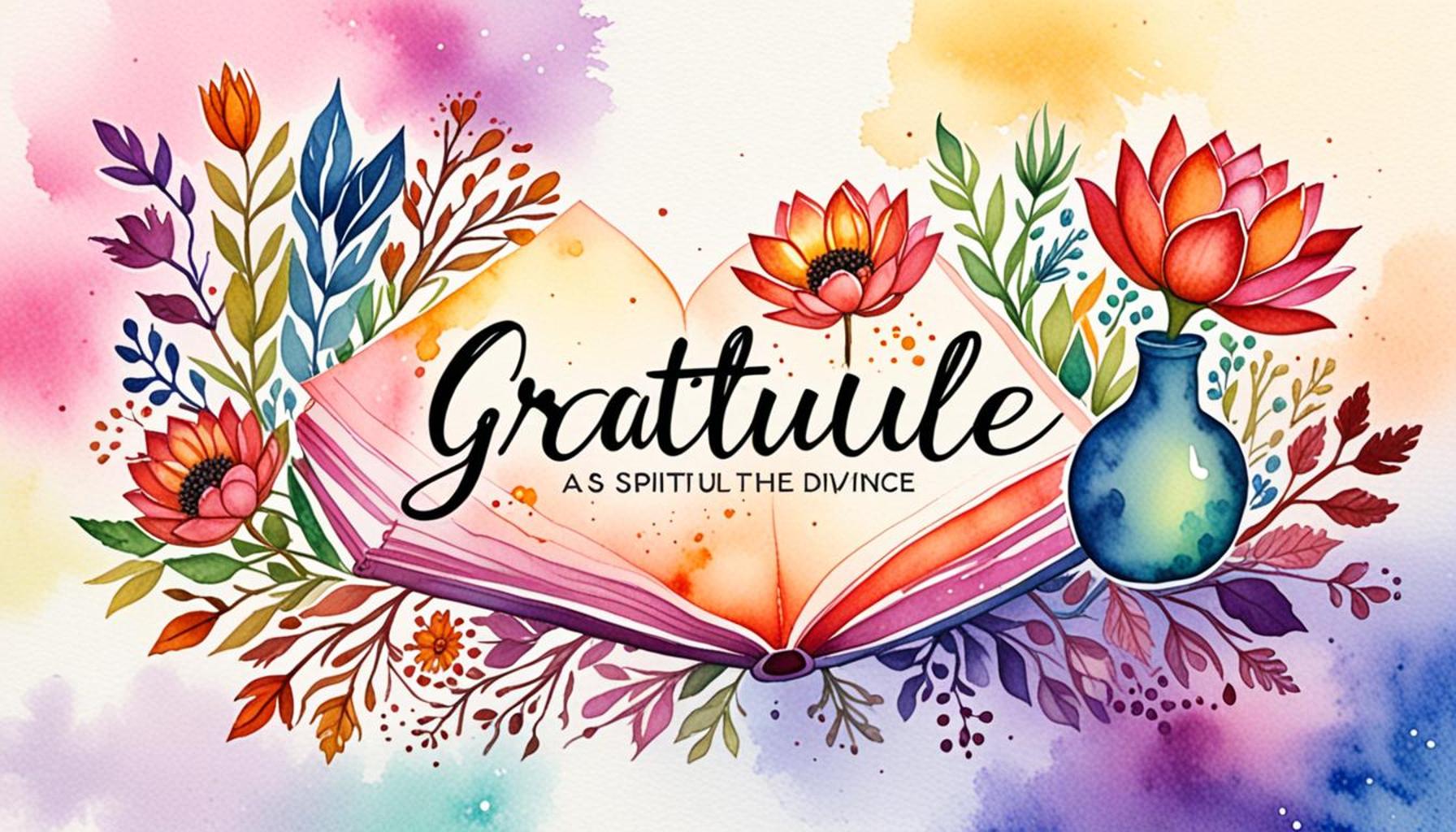How Gratitude Can Transform Your Perspective and Boost Your Self-Esteem

Understanding the Transformative Effects of Gratitude
In the relentless pace of contemporary life, where demands often outstrip resources and optimism can fade, embracing gratitude emerges as a transformative practice. The profound act of expressing gratitude can serve not only as a coping mechanism but also as a pivotal strategy for personal growth and emotional well-being. Various studies have demonstrated that gratitude is more than a fleeting feeling; it can significantly alter our brain chemistry, reinforcing our ability to perceive the world more positively.
Many individuals overlook the tangible benefits of incorporating a daily gratitude practice into their lives. However, a few compelling advantages highlight why this simple yet profound habit deserves attention:
- Improved Mental Health: Research consistently shows that individuals who make it a point to recognize and appreciate their blessings report fewer symptoms of depression and anxiety. Journaling about what you are thankful for, even if it’s just a sunny day or a kind word from a friend, can elevate your mood and provide relief from negative thinking.
- Enhanced Relationships: When we take the time to express appreciation for those around us, whether it’s a family member, friend, or colleague, it nurtures bonds and fosters a sense of connection. Complimenting a neighbor or thanking a colleague for their help builds trust and deepens relationships. For Nigerians, sharing gratitude can be as simple as acknowledging the effort someone puts into a communal task, solidifying community ties.
- Increased Optimism: Regularly practicing gratitude can lead to a more positive outlook on life. Acknowledging the good, even in tough circumstances, helps to shift focus from scarcity to abundance. In the context of Nigeria, where challenges are abundant, finding joy in small victories—like successful family gatherings or community support—can significantly enhance one’s view of life.
For many in Nigeria, practicing gratitude may involve recognizing the resilience that exists within families and communities. Celebrating achievements, no matter how small, such as completing a project or overcoming an obstacle, reflects a national spirit of perseverance and optimism. Embracing this acknowledgment allows individuals to savor happiness in the face of adversity, creating a foundation of hope.
Further exploration into how gratitude shapes our emotional framework reveals that it not only enriches our personal lives but can also create a ripple effect in society. When gratitude becomes a cornerstone of our interactions, it fosters an environment of appreciation and positivity. This mindset can ultimately lead to transformative experiences, enhancing self-worth and promoting emotional resilience.
As you embark on the journey of integrating gratitude into your daily life, consider how these practices can not only redefine your reality but also inspire others around you to reflect on and engage with their blessings, creating a culturally rich tapestry of gratitude within the Nigerian community.

YOU MAY ALSO LIKE: Read read another article
The Science Behind Gratitude and Self-Esteem
Understanding how gratitude can transform your perspective and significantly boost your self-esteem involves delving into the science that supports it. Numerous psychological studies reveal that practicing gratitude can lead to measurable improvements in mental health, fundamentally altering how we see ourselves and our place in the world.
At the core of this transformation lies the concept of neuroplasticity—the brain’s ability to reorganize itself by forming new neural connections throughout life. When we engage in gratitude practices, such as writing in a gratitude journal or simply reflecting on what we appreciate, our brains release neurotransmitters like dopamine and serotonin. This biochemical response not only uplifts our mood but also contributes to a stronger sense of self-worth. The regular act of acknowledging our strengths and the positives around us helps rewrite our internal narrative, gradually replacing self-doubt with self-acceptance.
Many people may wonder what practical steps they can take to foster gratitude in their everyday lives. A few effective methods include:
- Gratitude Journaling: Dedicate a few minutes each day to write down three things you are thankful for. This practice can recalibrate your focus towards positivity and abundance.
- Expressing Appreciation: Take the time to tell others how much you value their presence or actions. Sincere compliments and acknowledgments can forge deeper connections and reinforce your own self-esteem.
- Mindfulness Meditation: Incorporate gratitude into your meditation sessions. Reflecting on positive experiences and feelings can enhance emotional resilience and foster a positive self-image.
For individuals in Nigeria, these practices hold cultural significance. Expressing gratitude not only uplifts personal spirits but also strengthens communal ties. For instance, during festive gatherings, people often share what they appreciate about each other, creating an environment of mutual respect and admiration. This sense of community contributes not only to individual happiness but also to a collective consciousness that values gratitude.
Furthermore, adopting a gratitude mindset allows individuals to focus on the abundance in their lives, pushing back against the narrative of scarcity that can often plague thoughts, especially in challenging economic situations. Recognizing moments of kindness from neighbors or celebrating community achievements can foster a heightened sense of belonging and self-worth. The positive reinforcement derived from such practices can be a catalyst for more profound personal development.
As we explore the multifaceted relationship between gratitude, perspective, and self-esteem, it becomes evident that adopting a grateful outlook is not merely an act of acknowledgment but a transformative journey toward emotional resilience and enhanced self-identity. By shifting focus from what we lack to what we cherish, we cultivate an enriched perspective that invites greater self-acceptance and empowers others to do the same.
| Advantage | Description |
|---|---|
| Enhanced Mental Health | Practicing gratitude regularly can reduce symptoms of anxiety and depression. It shifts focus from negative thoughts to positive aspects of life, creating a healthier mental space. |
| Increased Resilience | Gratitude fosters a sense of appreciation that can help individuals cope better during tough times. By recognizing what one is thankful for, it becomes easier to navigate challenges. |
The simple act of writing down what you are grateful for can create profound changes in your life. This practice isn’t merely a temporary mood booster; studies have shown that it can lead to long-lasting improvements in emotional well-being. When you actively acknowledge what you appreciate, your mindset naturally shifts. You begin to view challenges with hope instead of despair, ultimately cultivating a more optimistic outlook.Moreover, gratitude can fundamentally alter interpersonal relationships. Individuals who express gratitude towards others are often perceived as more kind-hearted and approachable, which can lead to stronger social connections. This, in turn, reinforces self-esteem as individuals feel more valued and supported within their social circles. Grateful individuals tend to demonstrate improved communication skills and empathy, enhancing their ability to form and maintain meaningful relationships. The ripple effect of gratitude spans across various aspects of life, making it a crucial component in emotional health and personal growth.
ADDITIONAL INSIGHTS: Expand your understanding here
Enhancing Perspective Through Gratitude
While the science behind gratitude sheds light on its psychological benefits, the way it enhances our perspective is equally profound. Adopting a gratitude practice can shift how we interpret our daily experiences and interactions, thereby influencing our overall worldview. When individuals regularly engage in gratitude, they start to notice an increase in positive emotions, often leading to a heightened appreciation for life’s simple pleasures. In the context of Nigeria, where community bonds and shared experiences are highly valued, integrating gratitude into everyday life can significantly transform how we connect with those around us.
This shift in perspective can be visually observed in communal events, such as cultural festivals or religious gatherings. Here, gratitude often translates into storytelling, where individuals express appreciation for their heritage, relationships, and surroundings. This storytelling fosters a sense of belonging and mutual respect, uplifting individual spirits while reinforcing community ties. Not only does this enhance one’s self-esteem, but it also creates a ripple effect of positivity within the group.
The Role of Gratitude in Overcoming Adversity
In challenging times, such as economic hardships or personal setbacks, gratitude serves as a tool for resilience. Nigerian communities often face difficulties, but embracing a grateful mindset can help individuals find hope amid adversity. Research indicates that individuals who practice gratitude tend to experience lower levels of stress and anxiety. By focusing on what remains positive, such as support from family or communal initiatives, individuals can foster an attitude of resilience that not only protects their self-esteem but also inspires others to remain hopeful.
Moreover, grateful individuals are more likely to engage in constructive problem-solving. They look beyond immediate challenges and tap into their strengths and the resources available within their communities. This proactive approach is vital, especially in Nigeria, where collective efforts often lead to innovative solutions during crises. Using gratitude as a lens can help individuals view challenges as opportunities for growth, enhancing their self-esteem.
Creating a Culture of Gratitude
Understanding that gratitude is contagious is pivotal in promoting a culture of appreciation. When one person expresses gratitude, it can inspire others to do the same. This ripple effect can create a supportive environment, whether in families, workplaces, or schools. In Nigeria’s diverse landscape, this culture can be particularly potent. For example, schools that incorporate gratitude practices encourage students to acknowledge their peers’ contributions, fostering a sense of unity and collaboration that can bolster individual self-esteem.
Additionally, local organizations and grassroots movements can play a significant role in enhancing a culture of gratitude. Through community service projects or appreciation events, these groups can highlight the importance of recognizing one another’s efforts. By actively participating in these initiatives, individuals contribute to a community framework where gratitude is exchanged freely, reinforcing their self-worth and encouraging others to cultivate the same.
As we dissect the impact of gratitude on perspective and self-esteem, it’s clear that these practices stretch beyond the individual. They ripple outward, creating a collective mindset that prioritizes appreciation, resilience, and community. This transformation not only uplifts individual spirits but also nurtures a sense of belonging, fostering an environment where each person feels valued and empowered.
LEARN MORE: This related article may interest you
Conclusion: Embracing Gratitude for a Brighter Tomorrow
In summary, the transformative power of gratitude extends beyond mere words of appreciation; it catalyzes a profound shift in perspective that can significantly enhance self-esteem. By adopting gratitude as a daily practice, individuals in Nigeria can reframe their views on life’s challenges and triumphs alike. The insights shared throughout this article highlight how gratitude nurtures community ties and enriches personal connections, creating a domino effect that fosters positivity and resilience.
Furthermore, the act of recognizing and appreciating the contributions of others not only uplifts oneself but also reinforces a sense of belonging within communal spaces. This cultural intertwining of gratitude, especially in Nigeria, catalyzes collaboration and creativity, essential components in overcoming adversity. As individuals begin to see challenges through a lens of opportunity, their self-esteem flourishes, leading to healthier and more proactive mindsets.
As we move forward, it is imperative to cultivate a culture of gratitude that thrives within our families, workplaces, and communities. Initiatives that promote appreciation can create environments where individuals feel valued and respected, ultimately enriching the collective spirit. The journey towards embracing gratitude starts with small, intentional practices, which can evolve into a powerful tool for enhancing one’s self-worth and perspective. Whether through personal reflections, community involvement, or acts of kindness, the act of being grateful can lead to a brighter outlook on life and renewed self-esteem.
Now is the time to embrace gratitude, for it holds the key to transforming our lives and communities for the better.


